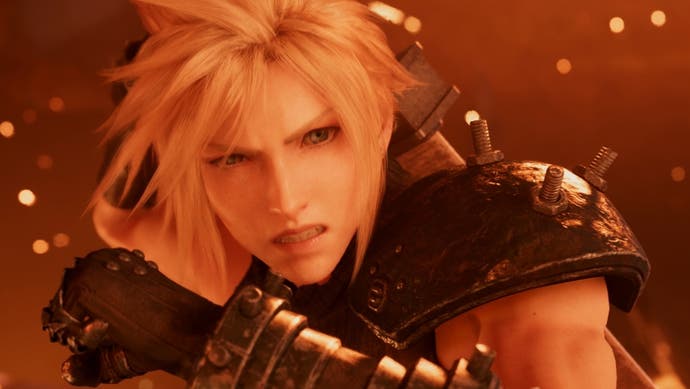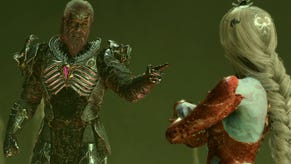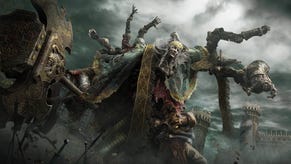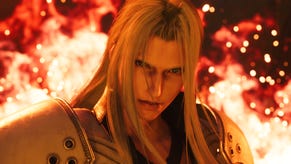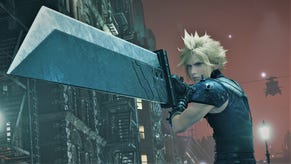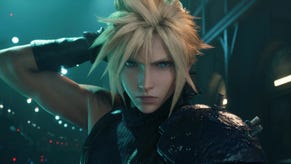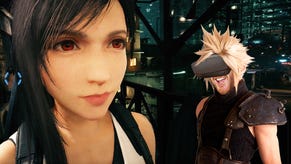Final Fantasy 7 Remake review - a faithful retread, with a few missteps along the way
Trouble and Strife.
It feels weird, after loving a game like Final Fantasy 7 for pretty much my entire life, to finally be able to say I've played the Remake. After all the wondering how such and such would look, or how this bit will play, I finally have the answers to the millions of questions I had. It's been a long road, and I'm sure like many Final Fantasy 7 fans, part of me never thought we'd get here. But, after many, many hours, I've scoured the entire length and breadth of an expanded Midgar, I've caught up with some very dear old friends, and, I'll be honest, it's been emotional - even if the remake makes a few missteps along the way.
It's no easy task to rewrite one of the most beloved stories in videogame history, and given the series' recent shaky past even Final Fantasy 7's most optimistic fans were nervous as to how their favourite characters, moments and story arcs would weather the transition. But I'm happy to say that, for the most part at least, the spirit and tone of the original Final Fantasy 7 is perfectly preserved. Dare I say it, the remake even manages to frequently improve upon the original's telling of the story.
Characters you know and love are fizzing with new life and personality, their expressions and movements and little asides capturing the essence of what made them so iconic and enduring. Even the dialogue - which some feared would be stilted given a few previews - mostly hits the mark. There are plenty of laugh-out-loud moments as the party chat, bicker, and get to know one another on their journey. And this is also one of the thirstiest games I think I've ever played - Square knows exactly what it's doing as it toys with your affections, making you fall in love with one character after another. If I had my way it wouldn't be so much a love triangle as a love decagon.
This Remake is respectful of the original Final Fantasy 7 for the majority of its runtime, right down to specific lines of dialogue being said just so and NPCs being dressed a certain way But it has made a lot of changes too - some small, some story-alteringly huge. The Wall Market, for example, retains most of the little narrative details that made the place so special and fun to explore, but these details have been reworked so that even if, like me, you know the original like the back of your buster sword, exploring those neon-tinged backstreets isn't without some surprises. Bigger narrative beats have been reworked - I won't spoil them here - and it's too early to say whether they've changed things for better or for worse, but they have changed things. The implications for the second part of this project could be absolutely massive is all I'll say.
Some changes are smoother in their implementation. Combat is very different here, updated in order to keep pace with modern players. You now control the party as they move freely around the field of battle in real time, where blocking or carrying out basic attacks fill an ATB, or active time battle, bar. With each filled section of this gauge, you can press X to slow time to an almost complete stop and use unique abilities, items, or spells, to make the real difference in combat. It's a smooth transition from the old combat style to the new, and it is far more tactical than it first appears. There are some issues, however, especially prevalent in late game where enemy AI has a tendency to immediately switch its attention to whichever party member the player currently controls, which, when you're forced to switch in particularly difficult fights, makes it incredibly hard to see your strategic planning and placement through to a satisfying conclusion.
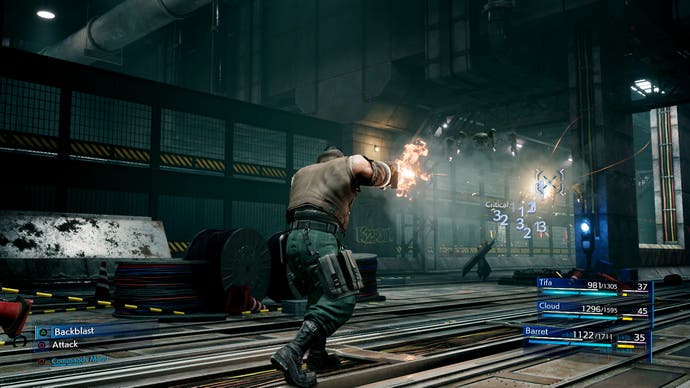
For the most part, though, it's a thrilling system that capitalises on the individual strengths of each party member, making each one distinctive to control. As always, you'll be leaning on magical orbs of materia to do a lot of the heavy lifting too, and although there are lots of new materia types for veteran Final Fantasy 7 players to get their head around, it all clicks into place organically. Other new additions include weapon upgrades and Weapon skills, whereby you can improve a weapon over the course of the game by spending a character's skill points or SP to alter its core stats, and characters can add each weapon's unique ability to their arsenal by performing that ability a set amount of times, meaning they can then access that ability without that particular weapon being equipped.
The weapon upgrading system may not be as deep or as useful as it first appears, but the weapon ability mechanic is much more impactful, helping each character blossom into their specific role - long-range, melee, caster, brawler - as time goes on. Anyone worried that the Final Fantasy 7 Remake would feel like a cheap hack and slash can rest assured that this is not the case - it might look like you can button-bash your way to victory at first glance, but most battles insist that you learn elemental weaknesses, stagger points, or an enemy's specific counter lest you be soundly punished.
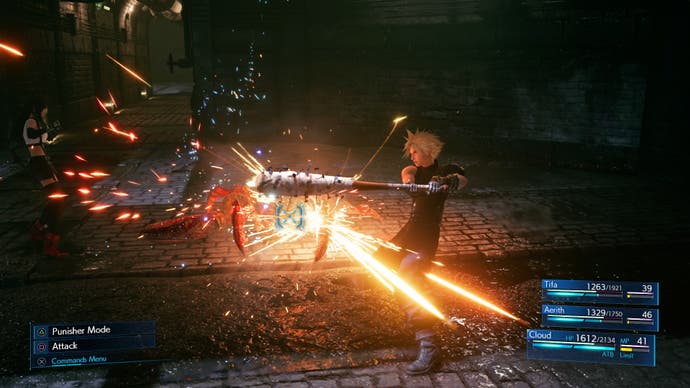
Of course, you'll be doing more than just fighting - there are collectibles to find and plentiful minigames, from darts to dancing. Activities that were minor asides in the original have been expanded upon here too. One major worry I had prior to playing the Remake was that it would simply be too short - but rest assured, this is huge. It took me over 45 hours to see the story through to its dramatic conclusion, with plenty of side activities left on the table for the New Game Plus option that unlocks upon completion. More important than all that though, it really feels like Square knew just how meaningful it was that this remake includes even the seemingly inconsequential or throwaway details that fans will be looking out for. This loving and lavish attention to tradition throughout most of the Remake's run time does subsequently make some of the choices towards endgame seem even more confusing, and it's something that's certain to be a point of discussion.
It's not all perfectly smooth, though. There's an inconsistency in quality when it comes to some hub areas, and technically it can be a bit of a mess. Some textures load slowly, if they load at all, making some assets look like they were lifted from the PlayStation 2 era. In later sections, I encountered some frustrating data streaming issues, where you'd trigger dialogue with an NPC and it'd take several seconds for the game to load it in. They're minor issues in the grand scheme of things, and they're the kind of problem that can likely be fixed at a later date with some optimisation. But still, they're worth mentioning.
One of the worst things about the Final Fantasy 7 Remake is how long we'll have to wait for the next instalment - and the other thing we can't talk about for fear of spoilers. But I feel safe in saying that, for the most part, the Final Fantasy 7 Remake gave me everything I was looking for. What I think it got right another fan may disagree with, and that doesn't mean either of us are wrong. Changes have been made, but the core essence and spirit of Final Fantasy 7 has been preserved brilliantly. Will it still be enjoyable and accessible to newcomers? That I can't be so sure of, but I believe so. What future instalments have in store, who knows, but this Remake gives us some beautiful moments in a universe some players have spent 23 years falling in love with. That alone is pretty special.
